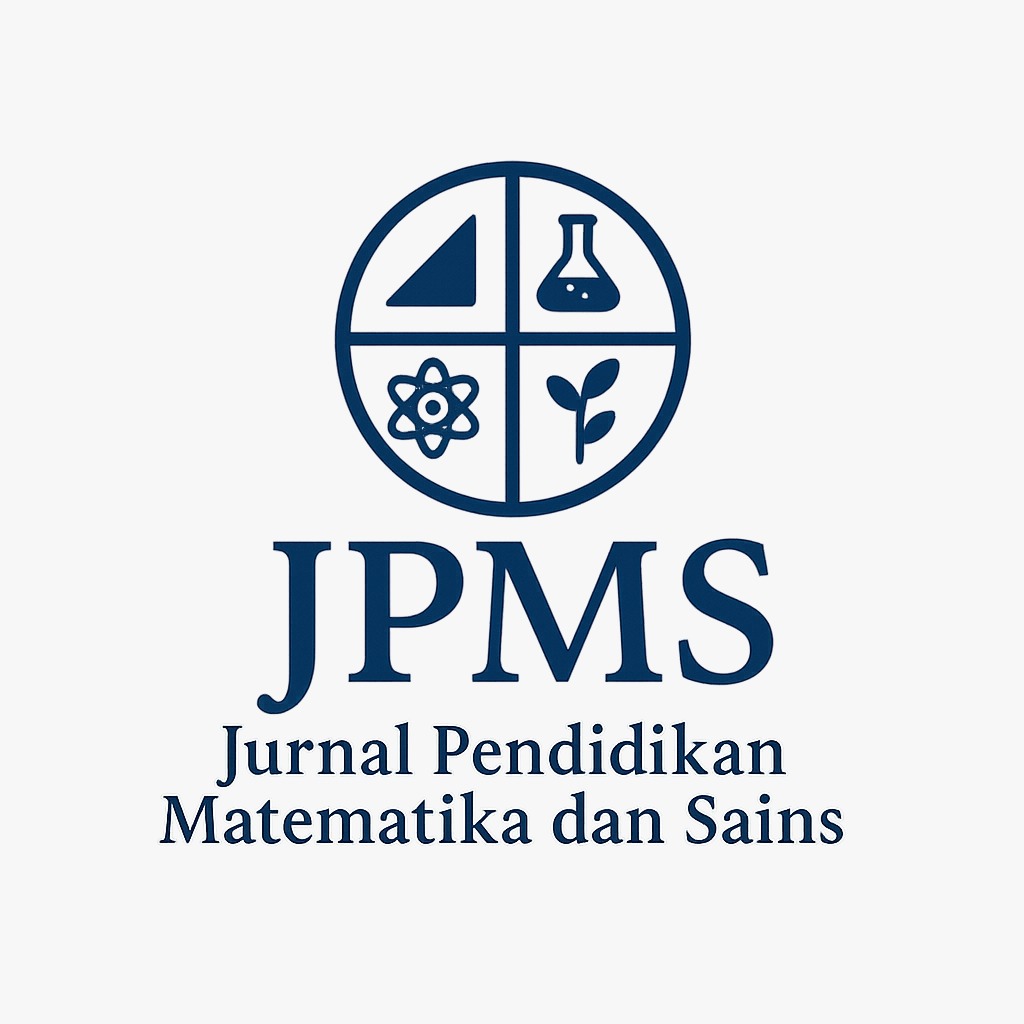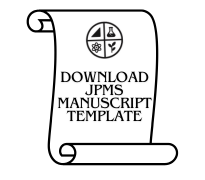The Influence of Science Subject Spesific Pedagogy (SSP) of Lab Work-Based toward Science Process Skills of Students at SMPN 2 Tolitoli
DOI:
https://doi.org/10.21831/jpms.v5i2.16669Keywords:
Subject Spesific Pedagogy, Lab work, Science process skillsAbstract
This research aims to find out the influence of Science Process Skills between a group of students who learn Science by using subject spesific pedagogy (SSP) of the elaborative lab work result - based with the ones who learn by using subject spesific pedagogy (SSP) of conventional lab work - based in the IX grade of SMPN 2 Tolitoli in academic year 2016/2017. The type of research is quasi-experimental study using non equivalent control group design. Two classes are chosen as samples by using random sampling techniques, they are class IXB as the experimental class and IXC as the control class. Each class consists of 31 Students. The data of science process skills (SPS) are obtained through observation sheets. Then the data are analyzed by descriptive analysis techniques on significance of 5%. The result shows the significance is < 0,005, thus it can be concluded that the application of SSP during teaching and learning process of Science of the elaborative lab work result-based significantly effects on science process skills (SPS) of the students compared with the conventional ones. It is also reinforced by the improvement of criteria of SPS, which is 0,5 (medium category) for the experimental class and 0,1 (low category) for the control class.
References
Jalal, Fasli, et, Al. Teacher Sertification in Indonesia : A strategy For Teacher Quality Improvement. Jakarta : Jurnal Departemen Pendidikan Nasional RI.(2009). Balitbang. Hasil Survei TIMSS : Trends Internasional Mathematics and Scince Study. US : TIMSS and PIRLS International Study Center. (2011). Balitbang. Hasil Survei TIMSS : Trends Internasional Mathematics and Scince Study. US : TIMSS and PIRLS International Study Center. (2015). OECD. PISA 2012 Result : What Student Know and Can Do volume 1. Canada : OECD (2014) OECD. PISA 2015 Result : Snapshot of performance in science, reading in mathematics: OECD (2016) Rahmawati, D., Nugroho, S.E. & Putra, N.M.D. Penerapan Model Pembelajaran Kooperatif Tipe Numbered Head Together Berbasis Eksperimen Untuk Meningkatkan Keterampilan Proses Sains Siswa SMP. Unnes Physics Education Journal, 3(1) : 41-45. (2014) Rahmawati. Seminar Hasil TIMSS 2015: Diagnosa Hasil untuk perbaikan mutu dan peningkatan capaian. Diakses 1 April 2016 melalui http://puspendik.kemdikbud.go.id Rustaman, Dirdjosoemarto, S., Yudianto, S. A., Achmad, Y., Subekti, R., Rochintaniawati, D., & Nurjhani, M. Strategi Belajar Mengajar Biologi. Malang: UM Press. (2005). Williams, J., & Lockley, J. Using CoRes to Develop the Pedagogical Content Knowledge (PCK ) of Early Career Science and Technology Teachers. Journal of Technology Education, 24 (1), 34–53. (2012). Loughran, J., Berry, A., & Mulhall, P. Understanding and Developing Science Teachers 'Pedagogical Content Knowledge (2nd ed.). Rotterdam: Sense Publishers. (2012). Shulman, L. S.Those who understand, knowledge growth in teaching. Educational Researcher Vol. 15, No, 2, Page 4-14. (1986). Resbiantoro, Gaguk. Analisis Pedagogical Content Knowledge (PCK) Terhadap Buku Guru Sd Kurikulum 2013. Scholaria 6.3 (2016). Mishra, P., & Koehler, M. Teachers ' Technological Pedagogical Content Knowledge and Learning Activity Types : Curriculum - based Technology Integration Reframed. Journal of Research on Technology in Education, 41 (4), 393 – 416. (2009). Rahmadhani, Yeni, Adi Rahmat, and Widi Purwianingsih. "Pedagogical Content Knowledge (PCK) Guru dalam Pembelajaran Biologi SMA di Kota Cimahi." Prosiding Seminar Nasional Sains dan Pendidikan Sains X-Vol. 6. Vol. 6. (2016). Folmer, V., Barbosa, N. B. V., Soares, F. A., & Rocha, J. B. T. Eksperimental activities based on ill-structured problem improve brazilian school student understanding of nature of scientific knowledge. Journal of Research in Science Teaching. 8 (1). 232-250. (2009). Khan, M. S et al. Effect of inkuiri method on achievement of students in chemistry at secondary level. International Journal Of Academic Research. 3(1). 955-959. (2011). Zeidan, H.A., & Jayosi, R.M. Science process skills and attitudes toward science among palestinian secondary school students. World Journal of Education. 5(1). 13-24. (2015) p13 FeyzioÄŸlua, B., akyildiz, M., DemirdaÄŸ, B., & altun, E. Developing a science process skills test for secondary students: validity and reliability study. Educational sciences: theory & practice-12(3).1899-1906. (2012). Khan, M., & Iqbal, M. Z. Effect of inkuiri lab teaching Method on the development of scientific skills through the teaching of biology in Pakistan. Strength for today and bright hope for tomorrow journal.11(1). 169-178. (2011). Adolescent Girls Initiative (AGI). Life Skills: What are they, Why do they matter, and How are they taught? Learning From Practice Series,(2013). Guevara & Almario, C. Science Process Skills Development Through Innovations in Science Teaching. Research Journal of Educational Sciences, 3(2) : 6-10. (2015). Subagyo Y, et, al. Pembelajaran Dengan Pendekatan Keterampilan Proses Sains Untuk Meningkatkan Penguasaan Konsep Suhu dan Pemuaian. Jurnal Pendidikan Fisika Indonesia 5, 42-46. (2009). Chiappetta, E.L. & Kobbala, T. R. Science instruction in the middle and secondary school (7th ed). Boston: Progresive Publishing Alternatives. (2010). Shahali, E.H.M. & Halim, L. Development and Validation of a Test of Integrated Science Process Skills. Procedia Social and Behavioral Sciences, 9 : 142-146. (2010). Sukardiyono, Sukardiyono, and Yeni Ristya Wardani. "Pengembangan Modul Fisika Berbasis Kerja Laboratorium dengan Pendekatan Science Process Skills untuk Meningkatkan Hasil Belajar Fisika." Jurnal Pendidikan Matematika dan Sains 1.2 :185-195. (2013). Sudana, dkk. Bahan Ajar Pendidikan IPA SD. Singaraja: FIP Undiksha.( 2010). Widayanto. Pengembangan Keterampilan Proses dan Pemahaman Siswa Kelas X Melalui KIT Optik. Jurnal Pendidikan FIsika Indonesia (JPFI). Vol. 1(5):1-7. (2009). í–zgelen, Sinan. "Students' science process skills within a cognitive domain framework." Eurasia Journal of Mathematics, Science & Technology Education 8.4: 283-292. (2012) Margo, D. What is Subject spesific Pedagogy: the teaching or learning of a specific subject. Diakses pad tanggal 1 April 2017 dari http://instaedu.com/what-is-Subject-Spesific-Pedagogy. (2014). Chiappetta Eugene L, Kobbala Thomas R. Science Instruction in The Middle and Secondary Schools Developing Fundamental Knowledge and Skills. USA: Pearson. (2010). Depdiknas, Juknis Penyusunan Perangkat Penilaian Afektif di SMA. Jakarta: Depdiknas. (2010). Meltzer, D.E. The Relationship Between Science Preparation and conceptual learning gain in physics: American Journal of Physics. Vol 7, 214-221. (2007) Indrawati. Model-model Pembelajaran Pembelajaran Fisika. Jember: FKIP Universitas Jember. (2010). Khera, S.& Khosla, S. A Study of Core Life Skills of Adolescents in Relation to Their Self Concept Developed through YUVA School Life Skill Programme. International Journal of Social Science & Interdisciplinary Research, 1 (11): 115-125. (2012). Ekene, Igboegwu. Effects Of Co-Operative Learning Strategy And Demonstration Method On Acquisition Of Science Process Skills By Chemistry Students Of Different Levels Of Scientific Literacy. Journal of research and Development. 3(1): 204-212. (2011)
Downloads
Published
How to Cite
Issue
Section
Citation Check
License
Jurnal Pendidikan Matematika dan Sains allows readers to read, download, copy, distribute, print, search, or link to its articles' full texts and allows readers to use them for any other lawful purpose. The journal allows the author(s) to hold the copyright without restrictions. Finally, the journal allows the author(s) to retain publishing rights without restrictions
- Authors are allowed to archive their submitted article in an open access repository
- Authors are allowed to archive the final published article in an open access repository with an acknowledgment of its initial publication in this journal

This work is licensed under a Creative Commons Attribution-ShareAlike 4.0 Generic License.





